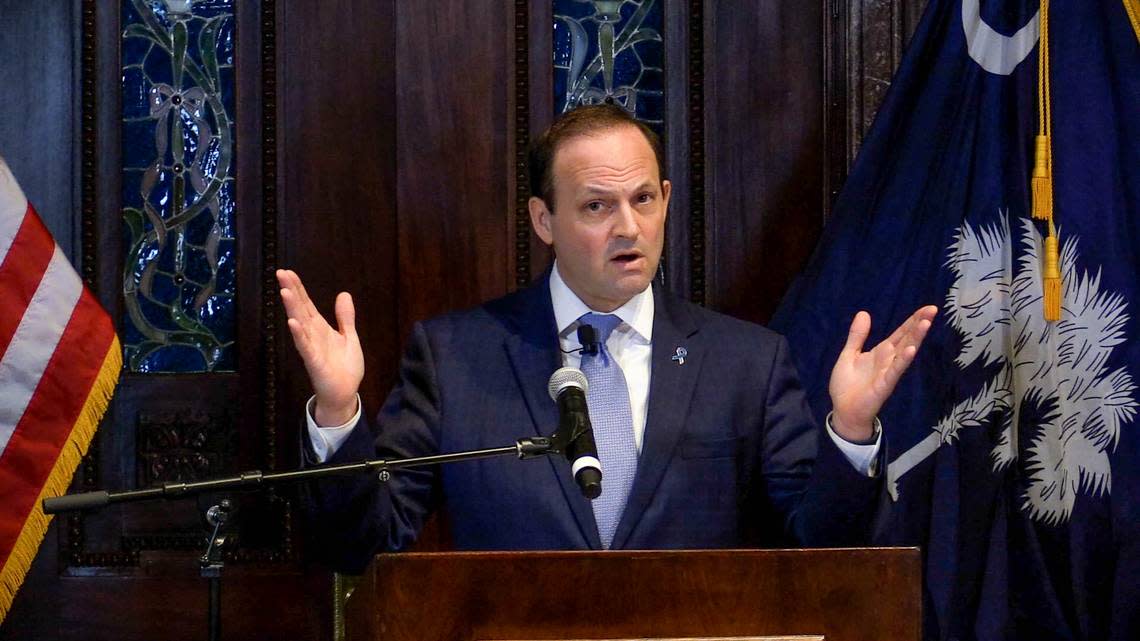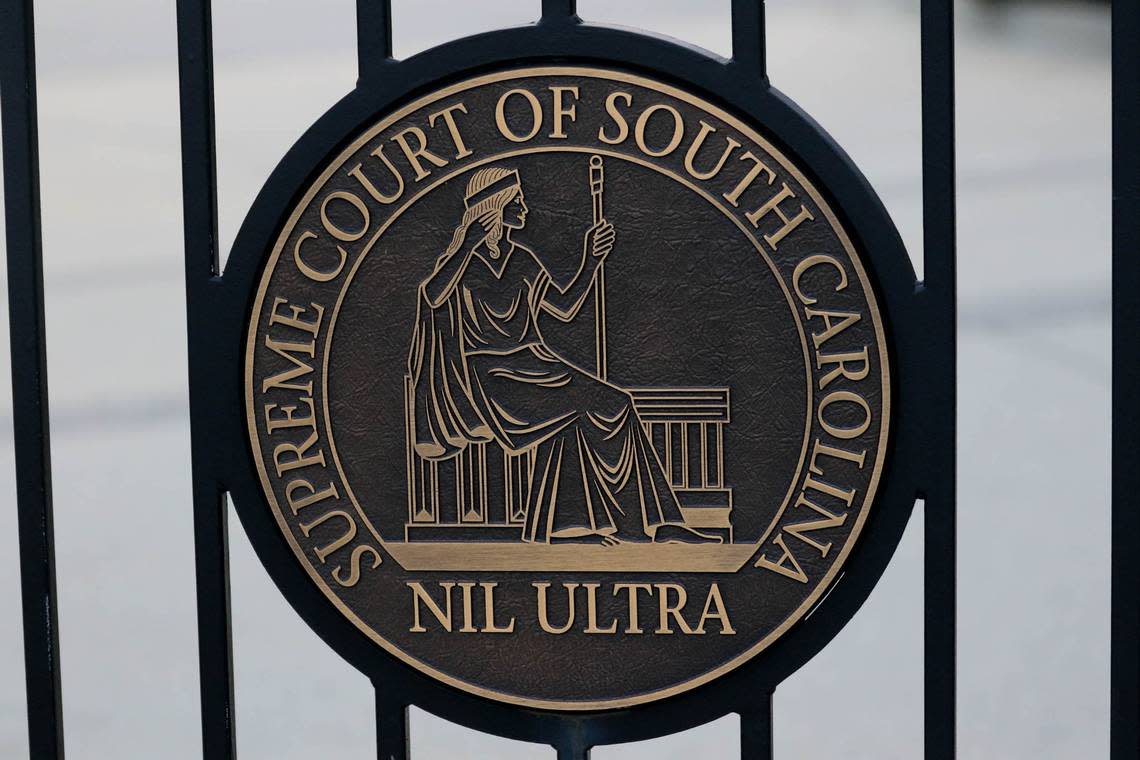SC Supreme Court says attorney general’s $75M payment to law firms can be questioned
The S.C. Supreme Court ruled Wednesday a citizen has the right to challenge State Attorney General Alan Wilson’s award of a $75 million legal fee to two Columbia law firms.
The court’s unanimous decision reversed a 2021 lower court decision that said John Crangle, a Columbia lawyer who writes extensively on governmental ethics issues, had no right to sue Alan Wilson over whether Wilson had the right to disburse a $75 million legal fee to two Columbia law firms.
Wilson had signed a contingency fee agreement with the firms — Willoughby & Hoefer, P.A.; and Davidson, Wren & DeMasters — that awarded them a percentage of a settlement concerning the disposal of dangerous plutonium, a bomb-making material, at the Savannah River Site. The federal government agreed to pay South Carolina $600 million, $75 million of which went to the law firms. Lawmakers then had $525 million to distribute in its annual spending plan.
In lower court, Crangle and a co-plaintiff, the S.C. Public Interest Foundation, contended that the $75 million fee was unreasonable and unconstitutional. Moreover, the two law firms didn’t do anywhere near enough work to justify such a sizable fee for their work in a long-running state case against the U.S. Department of Energy over how to dispose of the plutonium, the lawsuit alleged.
The lawsuit also alleged the $600 million settlement was not a legal settlement — it was a political deal arranged by politicians, and therefore the law firms didn’t deserve a huge fee.
Gov. Henry McMaster also questioned whether the $75 million fee was excessive.
First Circuit Solicitor David Pascoe, who is an advocate for government transparency and a Wilson critic, also objected to the deal, saying state law requires the entire amount to be deposited into the state’s general fund. The $75 million was disbursed to the law firms before it went to the general fund.
“Today’s ruling is a victory for transparency and ethics in our state — that $75 million belongs to the citizens of South Carolina, and we have the right to know how much work law firms did to earn any portion of it. It doesn’t belong to the Attorney General to give to whomever he pleases without justification,” Pascoe said Wednesday.
In a statement to The State, attorney general spokesman Robert Kittle said in an email, “the important thing to keep in mind about this ruling is that it deals only with the question of standing, not the merits of the lawsuit.”
Kittle attached a letter sent to the Supreme Court that cited extensive precedents in state history allow the attorney general to use private attorneys, reach fee agreements with them and pay those attorneys without putting that money in the general fund. And the Legislature once “considered and rejected a mandatory outside oversight of the attorney general’s contingency fee agreements,” the letter said.
Judge Alison Lee initially ruled in 2020 that Crangle lacked “standing” despite numerous State Supreme Court rulings that gives ordinary citizens the right to sue state officials for their actions in “matters of public importance.” A second judge, Kirk Griffin, then approved Lee’s ruling and dismissed the lawsuit, a decision Crangle appealed to the Supreme Court.
In their Wednesday ruling, written by Associate Justice George “Buck” James Jr., the justices said that Wilson’s fee-giving authority was “a matter of public importance” and as such, is a question that can be aired in court.
“By claiming Wilson improperly disbursed state settlement funds, (Crangle) indisputably allege(s) an issue of public importance,” the ruling said.
Whether Wilson has the authority to enter into contracts is an issue that’s not going away, the justices said.
“This issue will inevitably arise again in the future because Wilson has seven other litigation retention agreements with private attorneys,” the ruling said. These agreements are currently listed on the attorney general’s website, and five contain contingency fee provisions.”
As an example, the justices said that Wilson recently announced a $300 million settlement with opioid distributors, which was part of litigation that had a contingency fee provision identical to the SRS settlement.
The ruling said that the justices are not expressing an opinion on the merits of the lawsuit that Crangle brought.
The settlement of the legal case on which Wilson’s lawyers worked put an end to a 20-year dispute with the Department of Energy over tons of deadly plutonium that wound up in Barnwell County at the Savannah River Site.
Plutonium wound up being stored at the site as a result of a failed deal between South Carolina and the federal government to build a plant to convert the plutonium into a substance that could be used for peaceful nuclear purposes. Plutonium is used for building nuclear bombs. Tons of plutonium still remain at the site and could stay there at least until 2042, under the terms of the settlement.
Wilson’s office had no immediate comment on Wednesday’s Supreme Court decision. When the lawsuit was filed, a spokesman for Wilson’s office said, “this lawsuit has no merit.”
Crangle was represented by attorneys James Griffin, Badge Humphries, Margaret Fox and Jim Carpenter.
“We were happy to see the Supreme Court ruled that paying $75 million in attorneys fees is an issue of great public importance, especially when it is paid from public funds,” Carpenter said.
Wilson and the law firms were represented by John Simmons, state Sen. Gerald Malloy, D-Darlington; state Rep. Todd Rutherford, D-Richland; and attorney general lawyers Robert Cook and, Emory Smith.
This is a breaking news story and will be updated.


